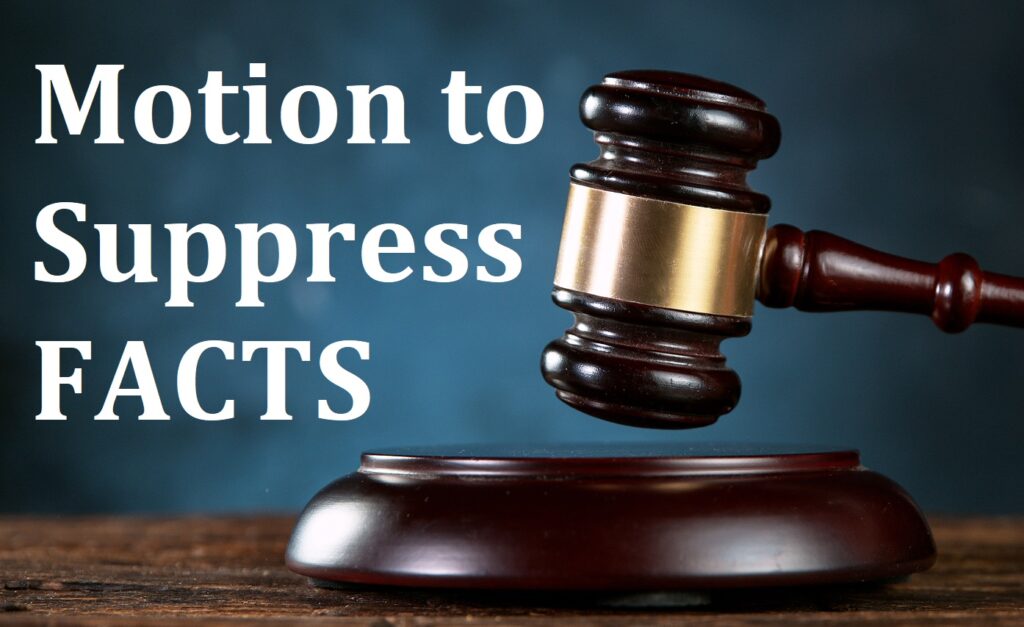After being arrested and charged with a crime in Indiana, your main focus will likely be on defending yourself against such charges and avoiding the maximal penalties if ultimately convicted. The most effective way of achieving this goal is to hire a skilled Indianapolis criminal defense lawyer. As you and your trusted attorney dive deeper into building and impactful defense against your criminal charges, you are bound to come a common legal strategy known as a motion to suppress. Because being granted a motion to suppress can significantly improve the outcome of your case, you probably want to know more about it, including when it can be applied during your trial.
Continue reading to learn more about motions to suppress, and when your lawyer might decide to use it in your criminal case.

Facts About Motions to Suppress
A motion to suppress is a strategic defense tactic used to keep certain types of evidence unavailable during the criminal justice process. Basically, defense attorneys in Indianapolis will request a motion to suppress as an attempt to conceal evidence that can lead to a guilty conviction. Upon being granted a motion to suppress, even the strongest or most damaging evidence is prohibited from being interred as evidence in the criminal case. So, you can see why this can be such beneficial defense strategy.
When is a Motion to Suppress Granted?
It is very rare to be awarded a motion to suppress in criminal court because there are only a few circumstances that qualify for approval. If evidence is obtained illegally or is in violation of a defendant’s state or federal rights, a motion to suppress is usually granted on behalf the defense. If you were to be granted a motion to suppress, it would happen during your criminal trial.
How is Evidence Obtained Illegally?
There are many ways evidence can be obtained illegally, but the most common way this type of criminal injustice occurs is when a defendant’s first language is not English, and they were not given a translator at the time of their interrogation or criminal questioning. Another way evidence can be obtained illegally is if a defendant was intoxicated at the time they confessed to their suspected crimes. Having a mental disability can also be considered an illegal retrieval of evidence in the case of the confession or interrogation.
Are you currently looking for criminal defense, or believe that the evidence being used against you was obtained illegally? Contact the Law Office of David E. Lewis at 317-636-7514 for skilled criminal defense in Indianapolis, Indiana. Our esteemed criminal defense attorneys represent juveniles, minors, and adults all throughout the state of Indiana.
You Might Also Read:
Reducing Criminal Charges With a Plea Bargain
Social Media Tips to Avoid Incriminating Yourself
How to Reduce Your Criminal Charges

